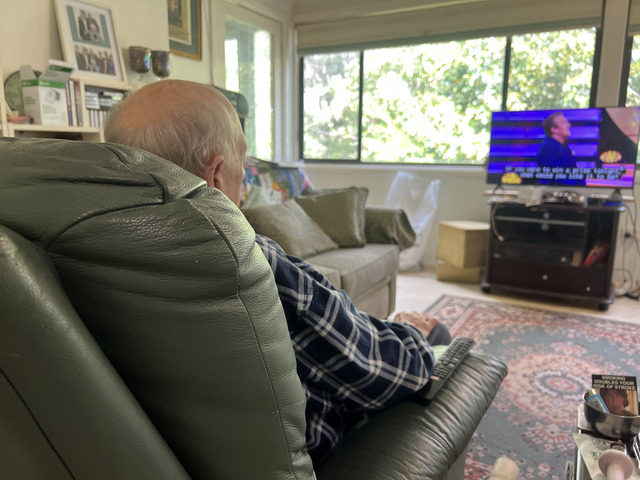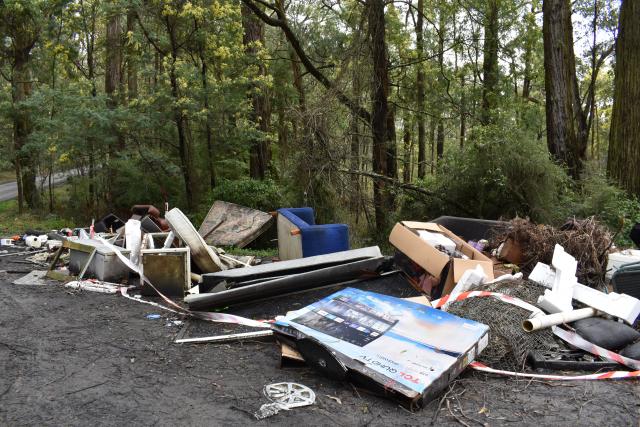As part of October’s Senior Festival Month, we turn our attention to a quiet street in Cockatoo, where a 94-year-old lives in a home he rebuilt with his own hands after Ash Wednesday’s devastation four decades ago.
Despite a lifetime of innovation, engineering excellence and community service, Ken Walton is now finding himself shut out of the very systems he once helped to build – simply because he prefers to use cash.
“I received a call,” Mr Walton said.
“They told me I had to come in person to sort something out.”
“I asked, ‘Can’t we do this over the phone?’ but they said, ‘No – we want to speak to you directly.’”
Mr Walton, who no longer drives, reorganised his day and travelled from Cockatoo to Pakenham with the help of his carer Christine – only to find the staff member wasn’t there, then began a frustrating back-and-forth between different offices, lunch breaks, and locked doors – all for one thing – to pay a bill.
“I had the cash ready,” Mr Walton said. “But they said, ‘We don’t accept cash.’”
Debit card wasn’t an option either.
“They said, ‘Only online.’ But using a computer for me is difficult, my fingers are crooked – I can only type with one finger,” he said.
Eventually, it was a bank worker who pointed Mr Walton in the right direction, the post office.
“She said, ‘Just go to the post office and pay it in cash there.’ So I gave the money to Tracy, my cleaner. She went down, paid it, brought back the receipt. Simple. But what a thorough waste of time before that,” he said.
In his working years, Mr Walton was highly sought after as an engineer, regularly travelling to sites across the country and internationally.
His quick thinking and practical solutions helped save businesses weeks, sometimes months – of downtime.
“If I was still working, my charge out rate today would be $390 an hour, including travel time,” he said.
Now, he finds himself walking further than his legs can manage, repeating the same answers to different people, only to be told there’s no way to pay a simple bill – unless he goes digital.
“I gave up my licence ten years ago. I rely on carers or neighbours to get around. It’s awkward. You have to get as much done as possible while someone’s with you,” Mr Walton said.
Though fiercely independent, he isn’t alone, many older Australians face similar challenges as services become digital-first – or digital-only.
According to the Australian Bureau of Statistics, a survey of seniors found 32 per cent felt frustrated using digital services in 2018, a figure that rose to 46 per cent by 2021.
“The main thing is, we can usually get to a local post office,” he said.
“But it should only be necessary to go further, like Pakenham or Officer, if it’s urgent, and it’s got to be the least amount of walking possible.”
Mr Walton has lived in Cockatoo for more than 40 years.
He helped design the very house he lives in, which he and his late wife rebuilt after losing their home in the 1983 Ash Wednesday bushfires, despite the hardships, he spoke with pride about the community, recalling times when things were more personal.
“Back then, you knew everyone, the postmistress, the chemist, the grocer, these days, that connection is fading. It’s all ‘me, I want’ – and not much community,” he said.
Mr Walton also points to the increasing risk of being taken advantage of, especially for the elderly.
“I needed a PowerPoint fixed and a TV aerial reconnected. One mob quoted me two and a half grand. Then another electrician came for a different job, saw the issue, and fixed both things for $25. That’s the difference – people who help, and people who try to rip you off,” he said.
Despite his frustrations, Mr Walton remains hopeful – and defiant.
“I’ll admit I’m only 94,” he said.
“But I intend to make 104. You don’t give in. The attitude’s got to be, I can do it because I’ve done it before.”
His message during Senior Festival Month is, “we don’t need tokens or gimmicks. We need actual help. Real access. Less walking. And more understanding.”
And perhaps, a world that still accepts a handful of cash.







